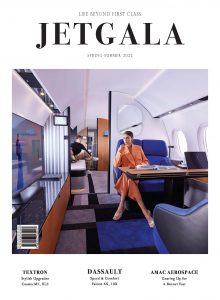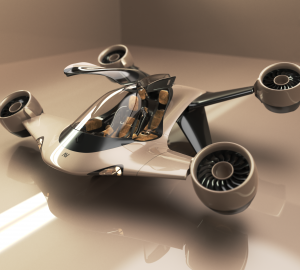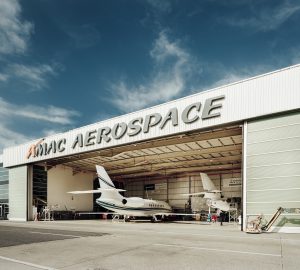AMAC Aerospace: Engineering the Future
To achieve AMAC Aerospace’s vision, the company blends Swiss precision with international perspective, and technical mastery with a human touch.
By Jim Simon
As one of the world’s leading providers of VIP aircraft completions and maintenance, AMAC Aerospace continues to set the benchmark for innovation, precision, and client satisfaction. Headquartered in Basel, Switzerland, the company spent 2024 expanding its global footprint while reaffirming its core values: technical excellence, rigorous safety, and long-term sustainability.
In this exclusive behind-the-scenes look, AMAC opens its hangar doors to reveal how it is navigating the evolving landscape of modern aviation. From developing full nose-to-tail VIP Airbus A350s to recruiting top-tier talent worldwide, the company is scaling both its capabilities and its unwavering commitment to quality. AMAC’s management team shares insights into their strategic expansion.
Inside AMAC Aerospace’s 2024 Engineering Milestones: Innovation, VIP Completions, and Global Expansion

At AMAC’s Basel headquarters, Head of Engineering & Certification Roger Sandmann shares an in-depth look at the company’s accomplishments and ambitions during the 2024 company update.
Over the past 12 months, AMAC’s engineering team has delivered an impressive volume of work, completing approximately 180 minor modifications in parallel with major VIP completions. Among the highlights was a fully customised Airbus A320neo for a head-of-state client.
“We delivered an A320… with a cabin for 22 passengers and one required flight attendant,” Sandmann notes, adding that the client was “very happy with the aircraft.”
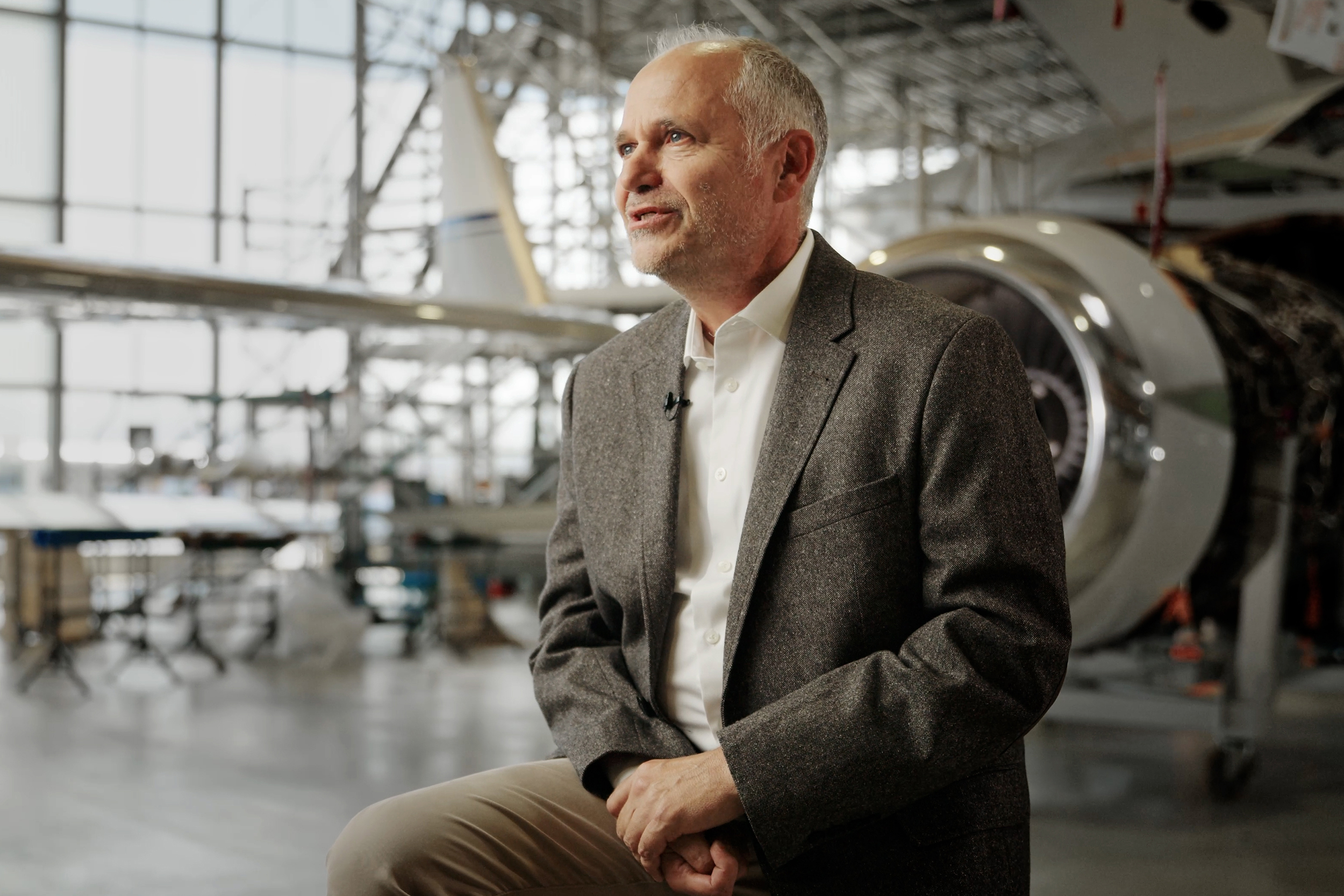
Another standout project is the company’s first full VIP Airbus A350 completion — an ultra-complex aircraft envisioned with seven showers, four bedrooms, a gym, and even a 3D cinema room.
“This is the first full VIP aircraft from nose to tail,” says Sandmann, highlighting the innovation and regulatory coordination needed to secure both FAA and EASA approvals.
Connectivity remains a core focus. AMAC has expanded its Supplemental Type Certificates (STCs) to cover satellite installations across a broad range of aircraft, including Boeing 737 variants and Airbus A340s. With more than 25 Ka-band systems installed, demand is growing for newer LEO platforms such as OneWeb and Viasat.
“It’s a nose-to-nose race between both platforms,” he says, noting that LEO offers smaller antennas and lower operational costs.

Internally, AMAC has invested in new capabilities such as a heat release and smoke emission chamber and is refining acoustic insulation packages with external experts.
AMAC has grown its global engineering team through virtual recruitment across countries like Brazil and the Philippines. As Sandmann puts it, “We’re a company with a clear focus to expand our capabilities… It’s a family business… and it’s teamwork.”
Global Recruitment and Precision Service Amid Soaring Demand
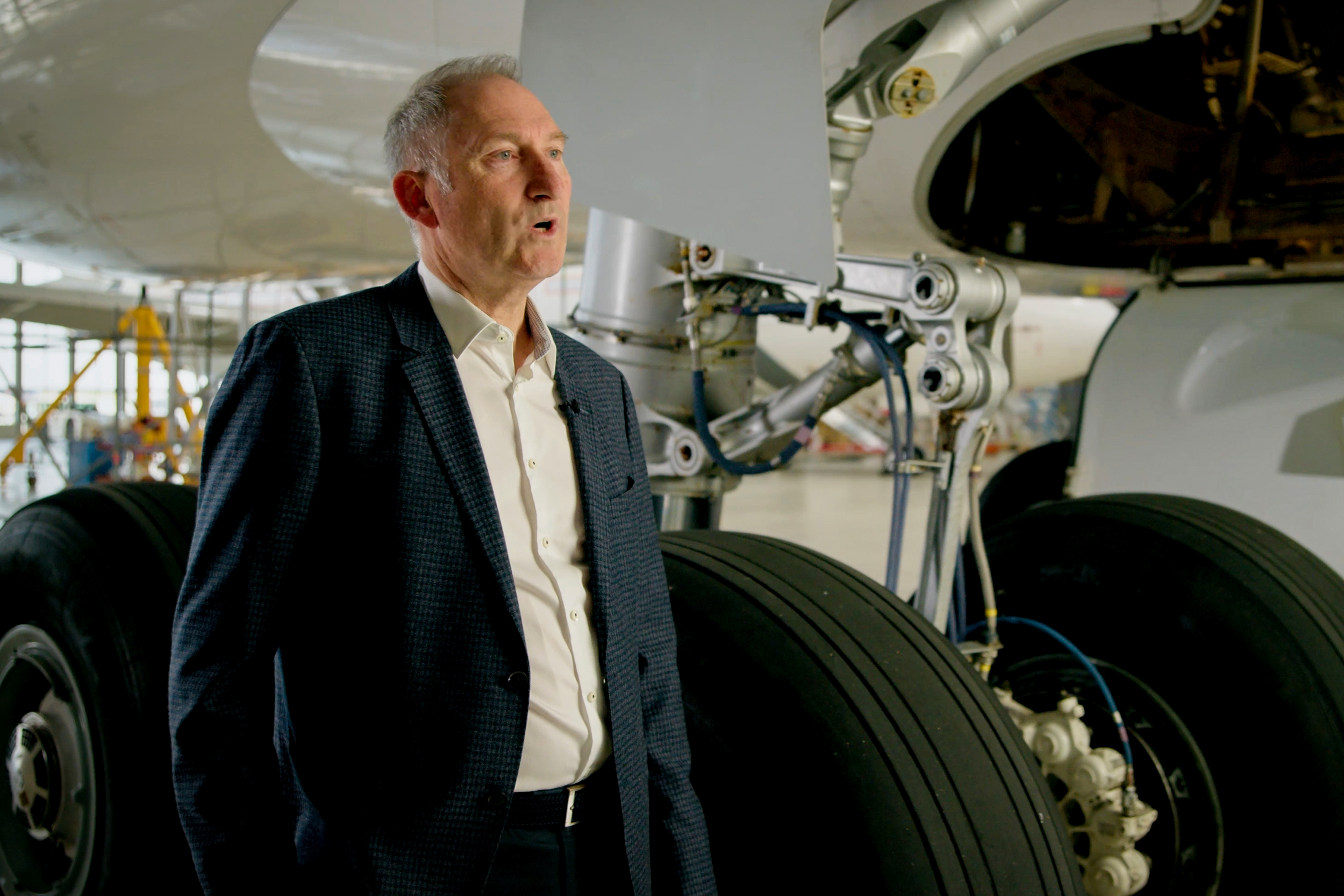
Senior Manager of Mid-Size Aircraft Maintenance and Support Shops, Rolf Heinzelmann, provides valuable insights into how AMAC is navigating an unprecedented surge in maintenance demand across all aircraft types.
“We are now recruiting globally for experienced staff,” says Heinzelmann, addressing the ongoing industry shortage of skilled aviation personnel. Alongside international recruitment, AMAC is also investing in future talent by partnering with European aviation schools. “We offer internships with a possibility for employment after successful completion,” he explains, adding that young local technicians with technical apprenticeships are being trained toward licensed aviation status.
Heavy base maintenance on widebody aircraft — particularly head-of-state jets — has seen a notable spike, often pushing AMAC’s hangar capacity to its limit. Yet, Heinzelmann emphasises, “Our narrow-body and business jet segment is equally important for us.”
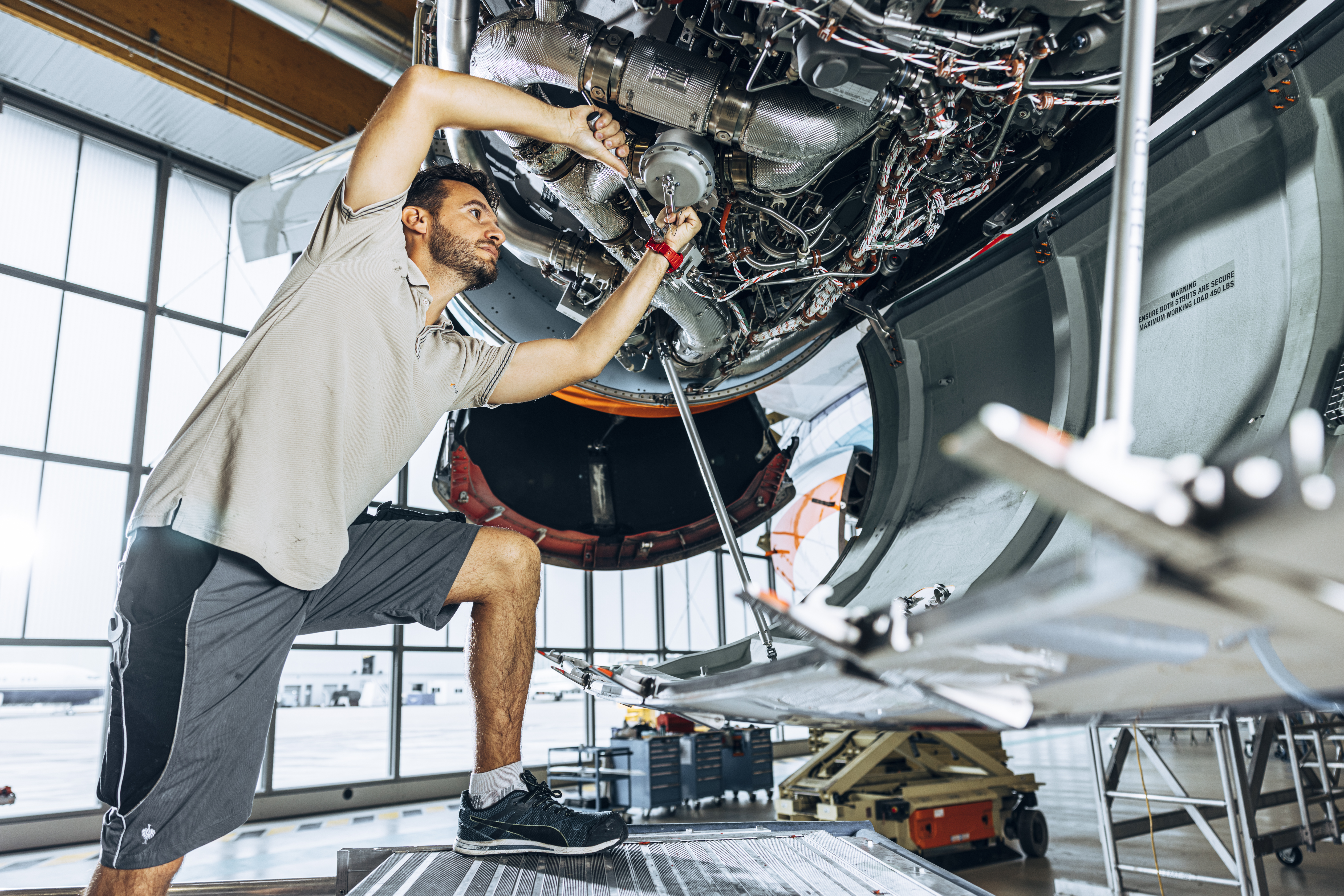
An increase in pre-purchase inspections (PPIs) has further diversified AMAC’s workload. “We’ve never seen so many aircraft transactions across all types,” he notes. “PPIs are very important because buyers often become future customers and request cabin modifications and system upgrades.”
To build trust, AMAC ensures transparency through meticulous reporting. “There is a daily update of findings to the customer,” Heinzelmann says. Weekly work progress meetings and financial updates allow clients to stay informed and in control.
With over four decades in aviation, Heinzelmann is optimistic: “I have never seen such a high demand for maintenance, modifications, and system upgrades. I don’t see any downturn — unless there is a global crisis beyond our control.” He sums up the pace of operations simply: “Extremely busy like never before.”
Expansion Driven by Innovation, Safety, and Sustainability
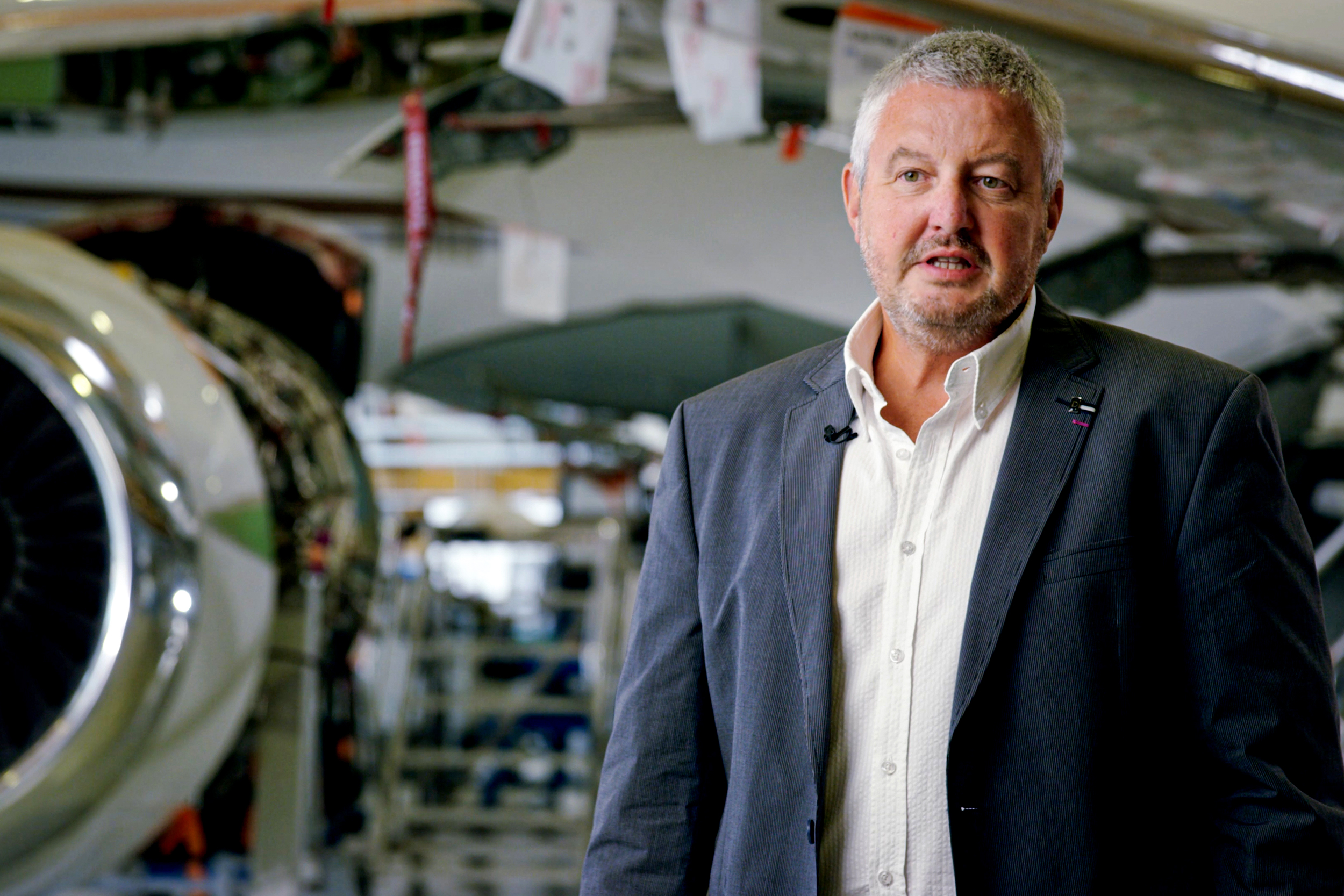
Philippe Schurrer, a key leader in AMAC’s expansion efforts, outlines how the company is scaling its infrastructure and workforce while prioritising safety and sustainability.
“We have completed the construction of more than 4,000 square metres for our engineering offices, giving our engineers here a new working space,” Schurrer declares, emphasising AMAC’s commitment to its growing team. Alongside the new offices, a state-of-the-art upholstery shop has been added to boost production capacity, while the group sales department have benefitted from a new design showroom that enhances the customer experience. We’re offering them a new design shop, giving to the customer the best view of our in-house savoir-faire,” he explains.
AMAC’s growth isn’t confined to Basel. In Bodrum, Turkey, the company is acquiring new land to build an additional hangar, while its JCB Aero facility in southern France have begun operations in a brand-new 5,000-square-metre hangar.

Despite the rapid growth, safety remains a top priority. “We accompany all of our colleagues in their daily work to make sure that they work safely to the highest standards,”Schurrer affirms. AMAC’s safety team is regularly trained in Europe’s top centres, including CNPP and ENRS, and the company proudly holds ISO 45001 certification. “This is an interesting commitment given to our employees,” he adds.
AMAC’s recent addition, Hangar 5, was a technical triumph. Built near the runway at Basel Airport, the project required intricate collaboration with maintenance teams and local authorities. “It was a challenge, but a really exciting one for the company’s development,” Schurrer explains with pride.
With more than a thousand employees, clear communication is essential. “The language for communication within our group remains English,” says Schurrer. But as a Swiss-based company, AMAC also works in German and French to reflect its multicultural environment.

Sustainability is equally embedded in AMAC’s DNA. “Since the very first day of AMAC Aerospace, sustainability is a real topic,”Schurrer notes. All AMAC buildings, including Hangar 5, are constructed from insulated timber frames. The company uses electric pushback tugs and equips taxiways with electric sockets to eliminate diesel-powered GPUs. “We continue our progress by making our car fleet hybrid or fully electric,” he says.
Schurrer does not hesitate with respect to what he values most about AMAC: “The team spirit—and that each day is not looking the same as the one before. That is really fascinating.” Reflecting on the company’s journey since 2008, he sums it up in one word: “Fascinating.”
With expansion, environmental stewardship, and a strong culture of safety, AMAC Aerospace continues to soar as one of the aviation industry’s most dynamic and forward-thinking companies.
